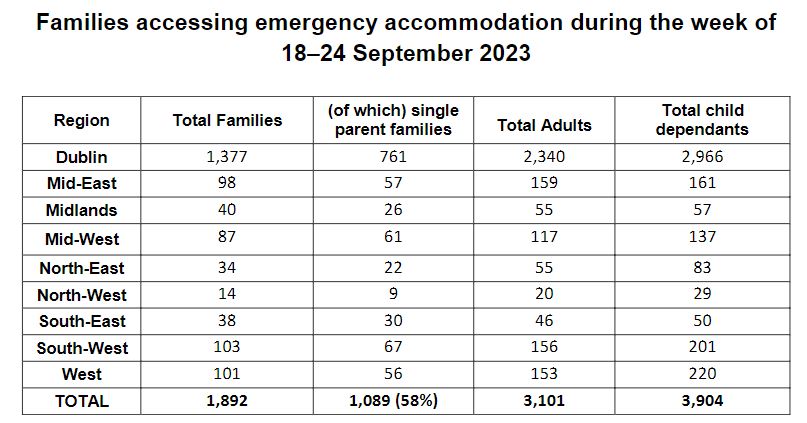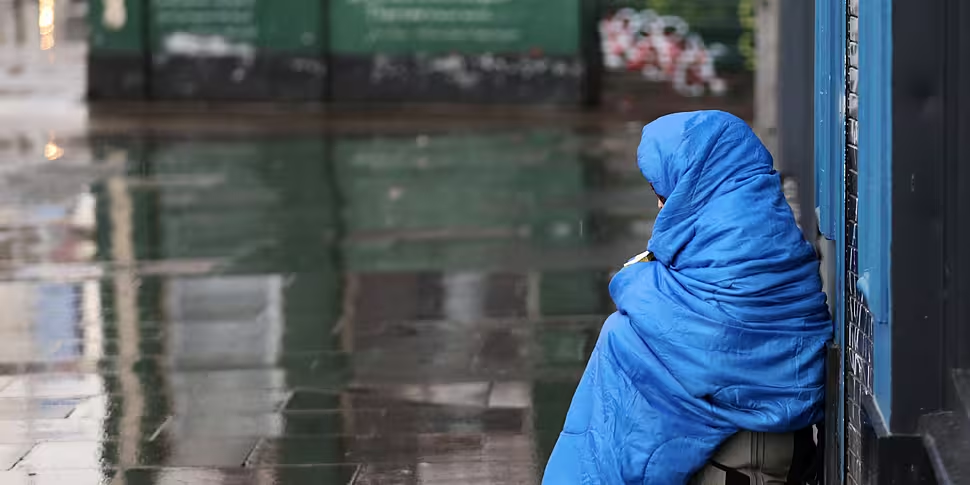Some 12,827 people were accessing emergency accommodation last month, including 3,904 children.
New figures show the total was a 1.1% increase on August, including a record number of children for the second month in a row.
This includes an increase of 132 single adults and six families accessing emergency accommodation during the count week.
It is 16% higher than the number of people registered as homeless the same time last year.
The issue is most acute in the capital with 9,391 people in emergency accommodation - including more than 2,966 children.
 Source: Department of Housing
Source: Department of HousingThe most common reason for presenting as homeless was relationship breakdown or family circumstance.
The report shows that during the third quarter, a total of 566 households exited emergency accommodation and 713 households were prevented from entering emergency accommodation by way of a tenancies being created.
Nationally, family presentations decreased 8.5% compared to the previous quarter.
The report also shows that 46.3% of single households accessing emergency accommodation have been in emergency accommodation for less than six months.
The figures from the Department of Housing do not include rough sleepers, women in refuge centres, refugees or asylum seekers, or the so-called hidden homeless.
'Concerning trend'
Simon Communities of Ireland Executive Director Wayne Stanley said the figures are extremely concerning.
"The figures released today are the highest number of men, women and children experiencing homelessness ever recorded in the month of September," he said.
"This concerning trend is driven by the lack of secure affordable homes.
"Our latest quarterly report... showed the lowest number of HAP properties on record. This unfortunate milestone was also observed in September.
"As we head into the winter months, we are again calling for increases in the HAP rates, increased allocation of social housing to those in homelessness and the overdue implementation in the Simon Homeless Prevention Bill."
'Preventive measures'
Mr Stanley said the bill, if passed, would insert a mechanism for local authorities to proactively prevent homelessness.
"The dire need for such preventive measures has become increasingly apparent in the face of these record numbers," he said.
"Choices were made in the Budget and the clear consensus is that there was no substantial action there to make a significant dent in the ongoing homelessness crisis.
"We have said it before, a crisis demands a crisis response.
"We saw the impact of the efforts made during the pandemic to reduce homelessness so we know a crisis response will deliver results. We are calling on the Government to act," he added.









